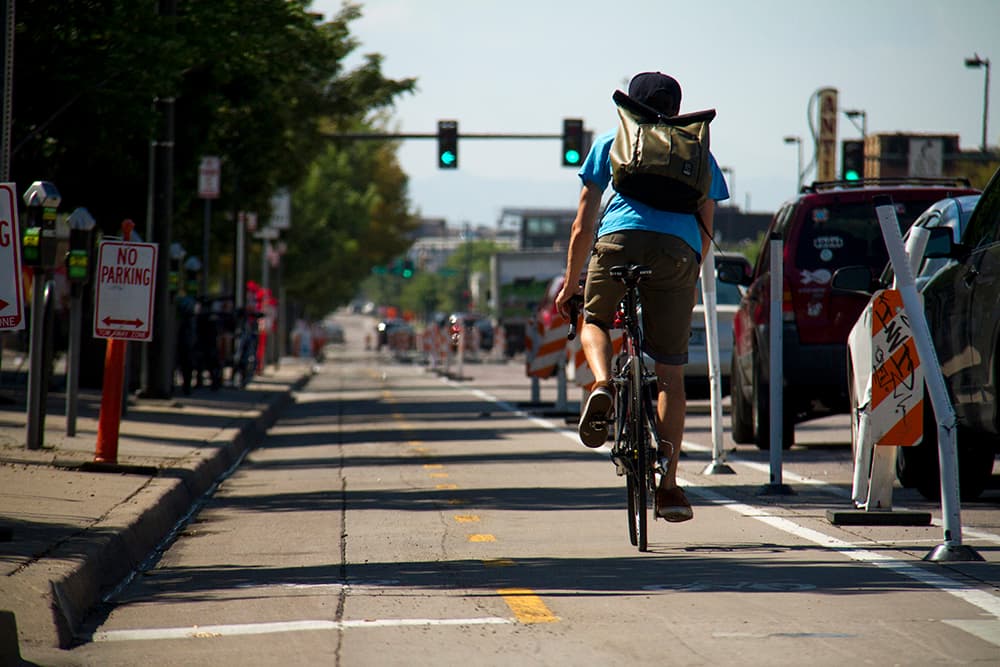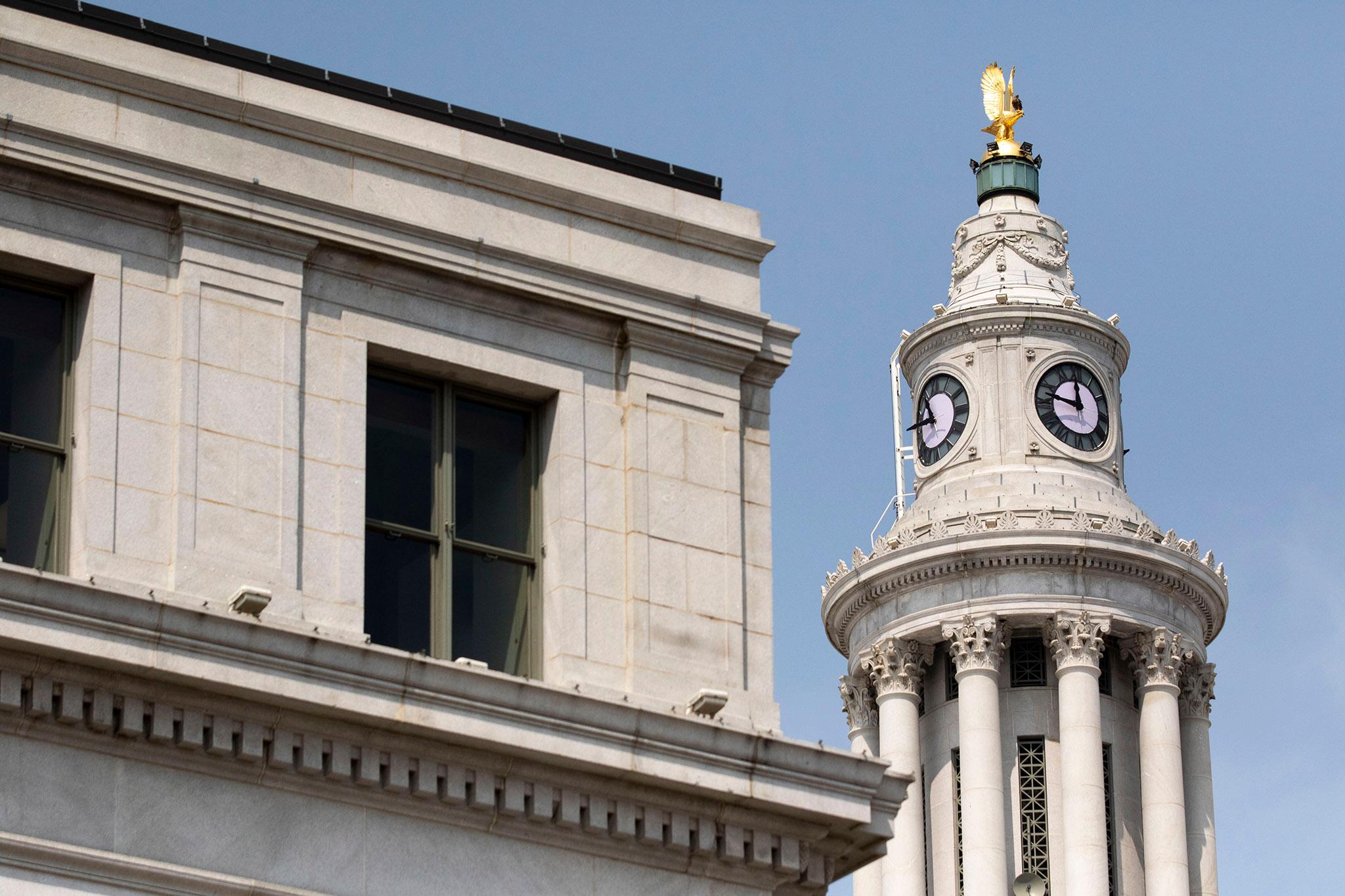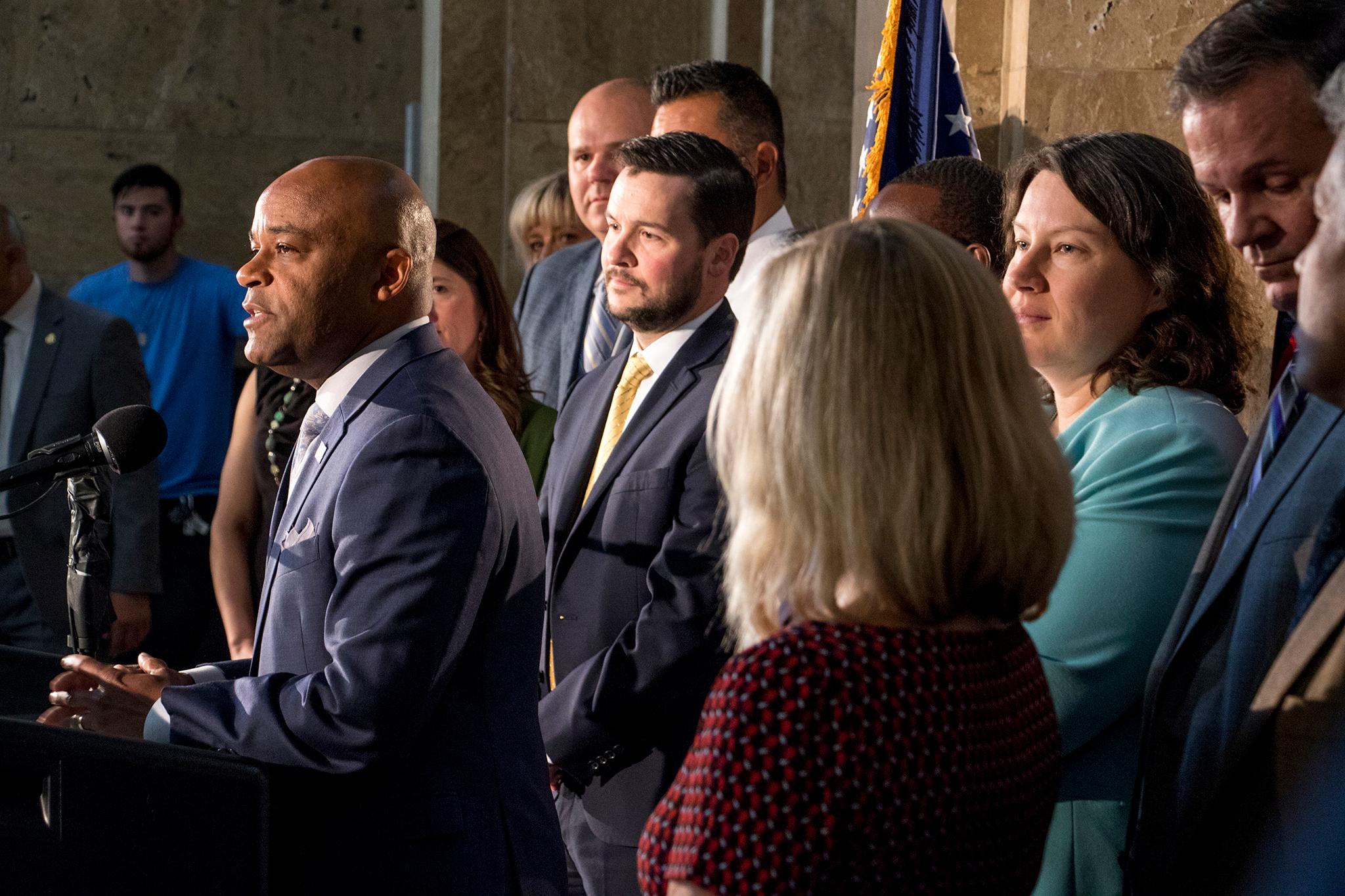While presenting Mayor Michael Hancock's proposed 2022 budget on Wednesday, the city's Chief Financial Officer Brendan Hanlon warned Denver's recovery is fragile, and depends on things like the Delta variant.
Oh, and a possible ballot measure that could cost the city millions in tax revenue.
The financial hit would be so dire, according to Hancock, that he took a moment during his presentation Wednesday for his proposed $1.49 billion budget to warn the public about it. The mayor said the ballot measure, Initiative 304, would cost the city $80 million in tax revenue if it passes, since it calls for a citywide sales tax reduction. He called it a "threat" to the city's future budget strategies; whereas Garrett Flicker, who filed the petition to get the measure on the ballot, said in a statement to Denverite the proposal would provide "some economic relief" from regressive taxes for residents who need it most.
Hancock's comments on the measure were a tense moment in an otherwise reassuring series of remarks. The mayor called his proposed budget financially responsible and equitable, arguing it will help both people who live here and people who work here.
"It does all this by investing in our people and putting their recovery first and foremost," Hancock said.
The 2022 proposed budget is bigger than the current year, and closer to the one Denver City Council approved for 2020, before the pandemic swept the globe and the city's coffers took a hit: The city ended up losing $211 million in expected revenue in 2020.
The proposed 2022 spending plan is about a 12 percent increase over the current budget, which was roughly $1.3 billion.
Hancock said his proposal would create "thousands of new jobs," that will help stimulate the city's economy and supports some of the city's underserved communities, including people of color.

Some of the ways the money would be spent:
- $200 million for capital improvements, so building and maintaining things like roads and mobility ($85 million), parks and recreation ($46 million), and city buildings ($42 million)
- $190 million for housing stability and homelessness resolution, including $31.9 million for the city's Affordable Housing Fund and $90 million toward directly supporting people experiencing homelessness
- $5 million in projects to improve access to cooling and green space and to reduce vulnerability to flooding, with an emphasis on helping disproportionately impacted communities
- $13.6 million to hire more first responders, including cops, firefighters and sheriffs
Some new funding includes:
- $9.2 million for transit investment from additional revenue generated by increasing metered parking rates from $1 to $2 per hour
- $5.7 million from marijuana tax revenue to create a business development program to help people of color and women interested in breaking into the marijuana industry
- $1.4 million for two Street Enforcement Teams responsible for public safety and code enforcement
- $1 million to create a Crisis Response Team providing emergency mental health services inside the city's jails
The spending plan calls for using some of the city's $308 million in federal coronavirus relief money for housing and shelter services, as well as to support local businesses. Hancock's administration is banking on voters passing a $450 million bond package this fall to help pay for additional projects throughout the city.
"These funds, together, will galvanize our recovery," Hanlon said.
The proposal is heading to Denver City Council, which has to approve the budget.
The legislative body has been hearing from Hanlon and other folks within the city's finance department for the past several weeks, and it hasn't always been a walk in the park. There have been a few tense moments as lawmakers called out the mayor's administration for the ways it wants to spend money and the way it communicates with city lawmakers.

The City Council released its six budget priorities in July after their annual budget retreat. In a release on Wednesday, the council said it will make sure budget requests made by each agency and department in the city aligns with those priorities. The council hasn't responded to the budget proposal's specifics yet.
Hanlon said he looks forward to the dialogue with City Council.
"We have nearly two weeks' worth of budget hearings so I imagine we'll have some robust conversations," Hanlon said.
The entire, 786-page proposed budget book is available online.












